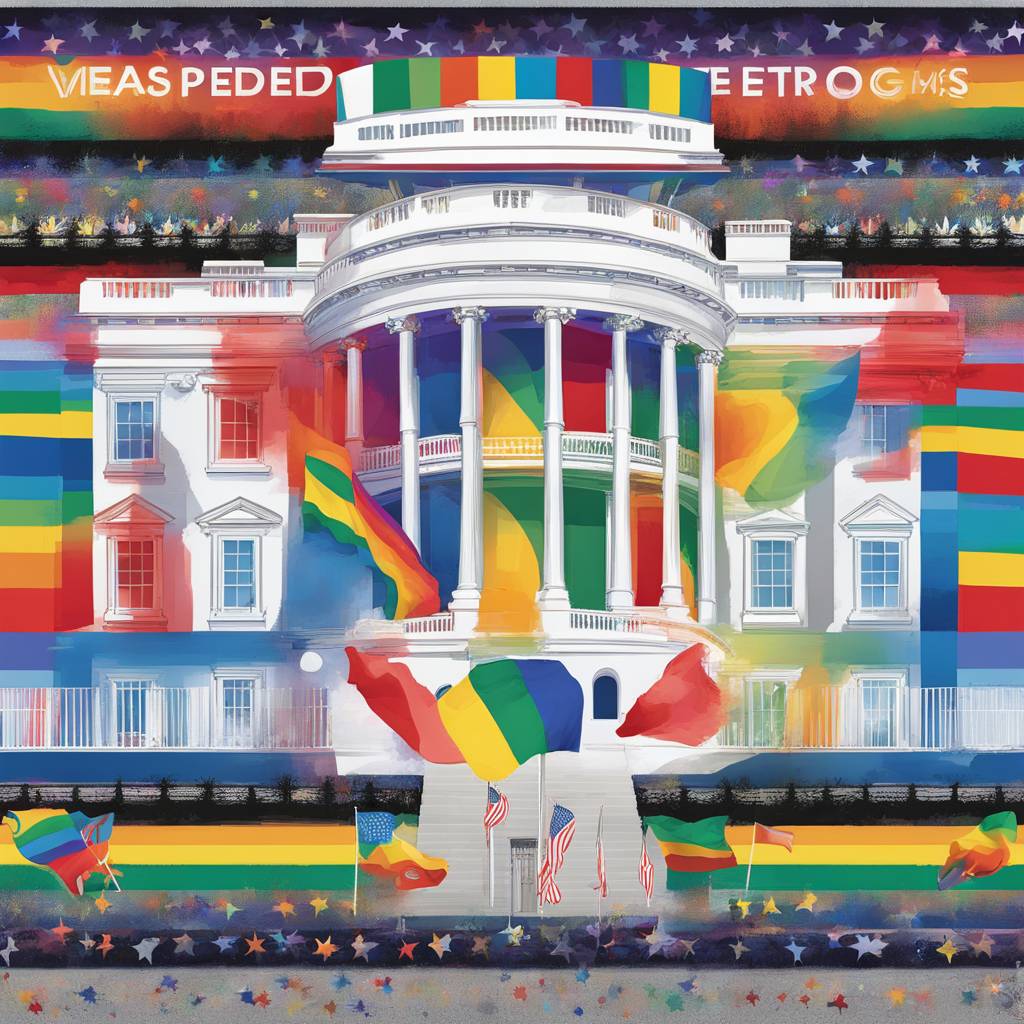The White House criticized congressional Republicans for including a provision in the government funding bill that limits which flags can be flown above US embassies, effectively banning LGBTQ flags. President Biden’s administration believes that this policy unfairly targets LGBTQI+ Americans and was inappropriate to include in the process of keeping the government open. While the provision will not impact the ability of LGBTQI+ community members to serve openly in embassies or celebrate Pride, the administration plans to work with Congress to repeal it.
The measure in the funding bill only permits certain flags to be flown over US embassies, including the US flag, US Foreign Service flag, and flags of other nations and official agencies. It does not restrict what flags can be flown elsewhere on embassy grounds or in offices. Despite the provision restricting pride flags from being flown over the exterior of embassy buildings, LGBTQ advocates argue that it does not limit the presence of pride flags in most other areas within embassies. The Human Rights Campaign spokesperson criticized Republican House Speaker Mike Johnson’s spin on the provision, calling it an attempt to appeal to a base with a disastrous agenda.
The White House successfully prevented over 50 other policy provisions targeting the LGBTQ community that Republicans had sought to insert into the legislation. President Biden remains committed to fighting for LGBTQI+ equality both domestically and internationally, according to the White House spokesperson. Under Secretary of State Antony Blinken, US diplomatic missions were authorized to raise the Pride flag above embassies and consulates worldwide in 2021, a departure from the previous administration’s rejection of such requests. Many US embassies traditionally raise the Pride flag during June, which is recognized as Pride Month in the United States and in other countries.
It is important to note that the provision does not ban LGBTQ flags altogether, but rather restricts their presence above the exterior of US embassy buildings. LGBTQ advocates argue that this restriction is unnecessary and politically motivated, given the ongoing efforts to promote LGBTQI+ equality both domestically and globally. Despite the criticism from the White House and LGBTQ advocacy groups, the provision remains in the government funding bill, sparking a broader conversation about the prioritization of LGBTQ rights in US foreign policy.
This latest controversy underscores the ongoing debate within the United States about the visibility and recognition of LGBTQ rights, particularly within a diplomatic context. The Biden administration’s response to this provision reflects its commitment to advocating for LGBTQI+ equality both at home and abroad, despite pushback from congressional Republicans. As the administration continues to navigate this issue, it remains to be seen how the debate over flag-flying policies at US embassies will influence broader discussions about LGBTQ rights in the future.
Overall, the conflict over the provision in the government funding bill highlights the intersection of politics, policy, and LGBTQ rights within the context of US foreign affairs. The White House’s condemnation of the provision and its efforts to repeal it demonstrate the administration’s commitment to supporting LGBTQI+ equality, despite opposition from congressional Republicans. As the administration continues to navigate this issue, the broader conversation about LGBTQ rights in US foreign policy will likely remain a key point of contention and advocacy for LGBTQ advocates and policymakers alike.













